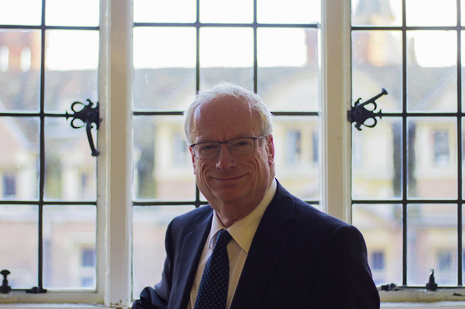Staff subjected to ‘xenophobic abuse’, says Pembroke Master
“It’s just so worrying that the referendum result seems to have given licence to this sort of abuse and denigration”, said Lord Chris Smith

Lord Chris Smith, Master of Pembroke College and an unaffiliated peer in the House of Lords, has warned that the University of Cambridge is already feeling the effects of Britain’s vote to leave the European Union.
Speaking to Varsity, Lord Smith said that Cambridge is being left out of some research opportunities due to “Brexit uncertainty” and that University staff have been subjected to “xenophobic abuse” since the referendum result in June.
He also called on the government to guarantee UK universities that it will make up for possible funding shortfalls caused by Britain’s departure from the European Union.
Some University and college staff have reported an increase in xenophobic abuse, he said. “For example, where staff are living around Cambridge, in some of the villages and towns nearby, people are telling me ‘I was shouted at in the street’ or ‘I had a note pinned to my garden gate’. It’s just so worrying that the referendum result seems to have given licence to this sort of abuse and denigration.”
“For someone who is here, who has devoted their life’s work to being here, suddenly they’re saying: ‘We’re not feeling particularly welcome.’ That is truly sad”, he added.
However, Lord Smith specified that this kind of abuse has not occurred within the University, where “both among staff and students there’s a very positive attitude towards colleagues with European backgrounds.”
He is also hopeful that the University’s relationship with Cambridge residents will remain unaffected by the referendum result.
“Cambridge itself – not talking about more rural areas around Cambridge – voted very substantially for remain.” The 74 per cent for remain and 26 per cent for leave, he said, revealed that “town and gown are much more closely aligned on this than people might have thought before hand.” In a Varsity poll conducted before the referendum, 85 per cent of University students and staff said they would vote to remain in the EU.
Lord Smith also warned that while it may be “early days” in planning for UK universities’ futures post-Brexit – given the uncertainty surrounding the terms of the UK’s departure from the EU – research projects at the University are already being affected.
He said he had heard about “research proposals that are beginning to get knocked back.”
High-level university research, he explained, is increasingly done “in collaboration with other universities” rather than by individual institutions. “And already there do seem to be accounts of research proposals where collaborating universities are saying: ‘We’d rather we didn’t put Cambridge on the list when we’re applying for this because we think that’s going to make it more difficult now, post-Brexit, for us to get approval’. And that of course is really worrying for Cambridge colleagues who are trying to push forward with their research work and are finding it more difficult as a result of this.”
Lord Smith expressed concern that UK universities so far do not receive “any guarantee from the UK government” that “if research funding disappears from Britain because of leaving the EU, they, the government, will regard it as a priority to replace it.”
Last week in the House of Lords, amid claims that the government has given behind-the-scenes guarantees to carmaker Nissan to encourage them to stay in the UK, Lord Smith’s fellow crossbencher Lord Hannay of Chiswick criticised the government for failing to offer the same “assurances” to “the presidents of the Royal Society, of the British Academy and of Universities UK […] in spite of their very serious concerns”.
Lord Smith told Varsity: “we are a research-based industrial country these days. A large amount of our economic wealth is derived from the work that is done on researching new techniques, new products, new discoveries. And a lot of that work goes on in places like Cambridge. And this is incredibly important, not just for the future of our universities but also for the future of our economic wealth as a country.”
“UK universities generally have done extremely well out of EU research funding. They have had a disproportionately high level of funding from EU funds and Cambridge has been one of the leading universities in that,” he said. Among the funding types that the University stands to lose are “European Research Council grants, Horizon 20/20 grants, Erasmus funding – a whole range of programs from the EU which have become increasingly important over the years for research being carried out here in Cambridge.”
Last month, figures released by UCAS suggested there has already been a decline in the numbers of EU students applying to Cambridge, with a nine per cent drop for courses whose application deadline was 15th October
 Interviews / ‘People just walk away’: the sense of exclusion felt by foundation year students19 April 2024
Interviews / ‘People just walk away’: the sense of exclusion felt by foundation year students19 April 2024 News / Copycat don caught again19 April 2024
News / Copycat don caught again19 April 2024 News / AMES Faculty accused of ‘toxicity’ as dropout and transfer rates remain high 19 April 2024
News / AMES Faculty accused of ‘toxicity’ as dropout and transfer rates remain high 19 April 2024 Theatre / The closest Cambridge comes to a Drama degree 19 April 2024
Theatre / The closest Cambridge comes to a Drama degree 19 April 2024 News / Acting vice-chancellor paid £234,000 for nine month stint19 April 2024
News / Acting vice-chancellor paid £234,000 for nine month stint19 April 2024





